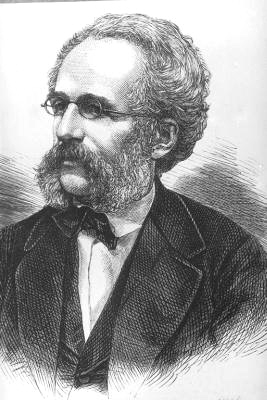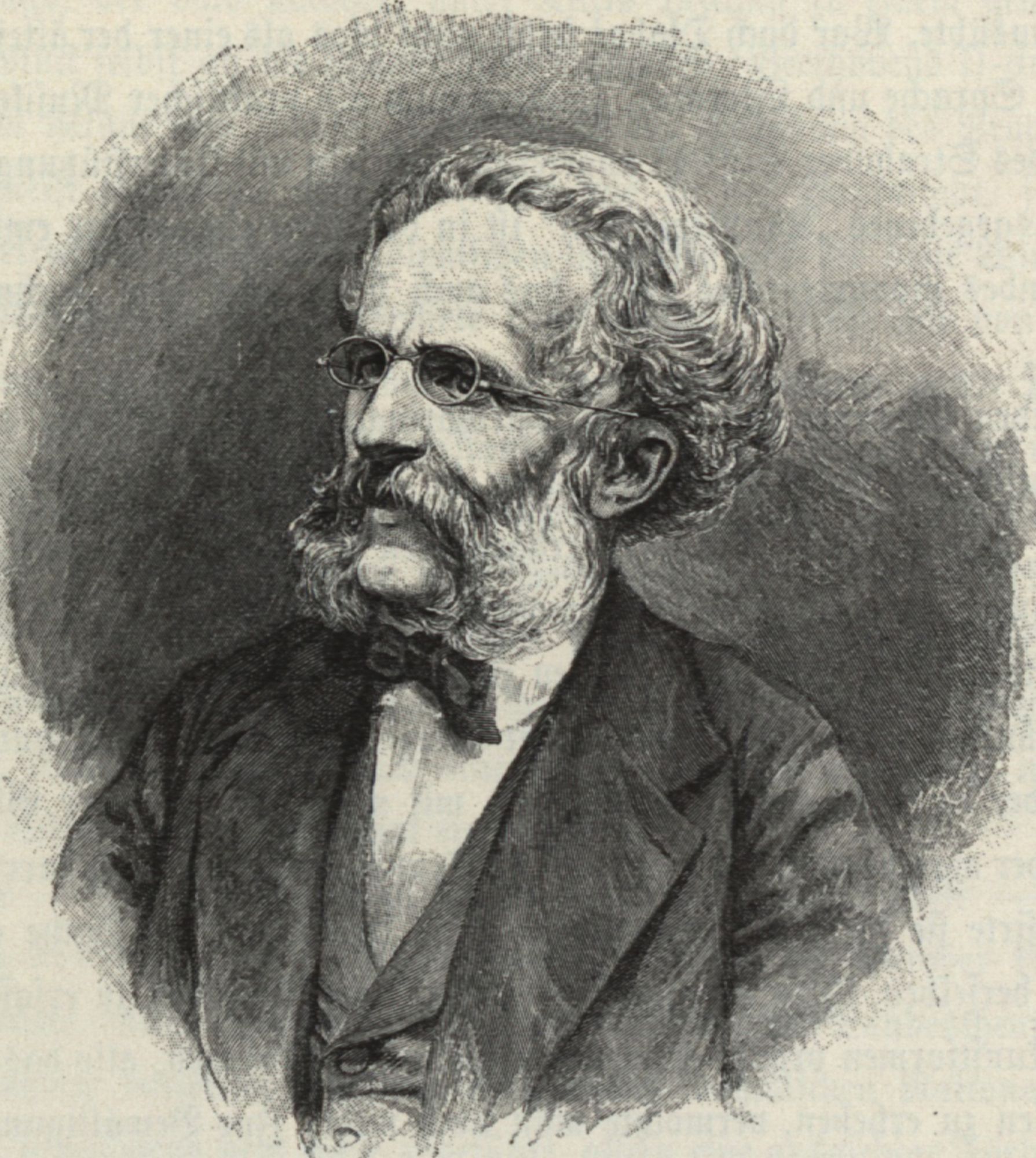August Wilhelm Ambros
August Wilhelm Ambros ( born November 11, 1816 in Mauth, † June 28, 1876 in Vienna ) was an Austrian music historian (including " History of Music ", 1862-1868 ), music critic and composer.
Life
Although his father had provided for him a legal career ( doctorate in 1839, Attorney deputy at the Prague Regional Court - thereby responsible in 1848 for the censorship of the Prague press - as well as the Ministry of Justice in Vienna), both music and art were his true profession. Even in youth Ambros was musically supported by his mother Caroline Ambros, a concert pianist. During his high school years in Prague he studied both painting and music practically and theoretically.
As a member ( Flamin ) he co-founded the Prague Davidic covenant he was doing his musical and journalistic role model, especially in Robert Schumann. His compositions were also influenced by the style of Felix Mendelssohn Bartholdy. He was opposed by numerous friends from the Prague educated middle class, which include Eduard Hanslick ( " Renatus " ) belonged to the then prevailing musical conservatism in Prague.
His contemporaries Ambros, in addition to his job as composer, especially as a music writer and critic known. With his debut album " The limits of music and poetry: a study of the aesthetics of music " (Prague, 1856), designed as a response to Hanslick's magazine " From the Beautiful in Music ," he introduced the aesthetic concept of " sounding moving shape " his concept the " animate form " counter. In his key message he was the Hanslickschen approach so close that Ambros this work though was able to record a journalistic success, the music aesthetic discussion of the second half of the 19th century, however, could not provide a conceptually new post.
This book, as well as works such as " Culturhistorische images from the musical life of the present" (Leipzig, 1860) and " Colorful leaves " ( 2 vols. Leipzig in 1872 and 1874) and a variety of newspaper publications nevertheless earned him his reputation as one of the most important music critics his time.
After a shot by the experts with interest lecture at the annual meeting of the German Musicians Federal in 1859 ( " Music as culturgeschichtliches moment in history " ) commissioned him the Breslauer publishing house Leuckart ( Constantin Sander ) with the work of a comprehensive history of music. The result was "History of Music ", a work in three volumes. The first volume dealt with the music of non-European cultures and music of antiquity ( with a particular focus on Greek music), the second volume of music from the 4th to the early 15th century ( with an emphasis on Gregorian chant, Guido of Arezzo, Antoine and Guillaume Busnoys you Fay ) and the third band with the music of the Franco-Flemish school (focus Josquin Desprez ).
Due to his training Ambros more than many of his colleagues was there familiar with the methodology and the concepts of the Historical School of Law and the art history of his time, which was reflected in the conception of the work. This stands in a field of tension between a philosophical -historical conception of Hegelian provenance and a strongly historicist embossed approach that seeks to follow the Ranke's postulate of " self-extinction " own historical intuition.
While Ambros worked on the " history of music ", he was released for several months in the year of its offices in Prague and Vienna (among other things as a professor of music history at the Prague Conservatory and as Crown Prince Rudolf's teacher of Art History) to materials in various archives in Europe to gather.
Ambros died before he could publish the fourth volume, which should include the age of Palestrina accomplish. The work was published in 1878 by Otto Kade and Hugo Leichtentritt. A fifth band with musical examples to the third volume of the history of music appeared in 1882 under the auspices of Kadesh. Wilhelm Langhans continued the work in " chronological order " proceeds, without being able to reach Ambros level.
In Vienna Liesing ( 23rd district ) of Ambrosweg is named in his honor since 1954.
Work
- The limits of music and poetry. A Study on Aesthetic of Music. Prague 1856.
- The Cathedral of Prague. Prague 1858.
- The Conservatory in Prague. Prague 1858.
- Culturhistorische images from the music world of today. Leipzig 1860.
- History of music. I. The music of ancient Greece and the Orient. Breslau 1862.
- II A. The beginnings of European western art. B. The evolution of the controlled polyphonic singing. Breslau 1864.
- III. A. The time of the Dutch. B. The music in Germany and England. C. The Italian music of the 15th century. Breslau 1868.
- IV [ music of Palestrina in Italy until around 1650 ]. "Fragment", Leipzig 1878.
- V. Chosen Tonwerke of the most famous masters of the 15th and 16th centuries. After unfinished hinterlassenem sheet music published by Otto Kade. Leipzig 1882.
- Name and subject index. Created by William Bäumker. In 1882.
- [ Vol.1 ]. Leipzig 1872.
- New Series [ Vol.2 ]. Leipzig 1874.
- Colorful leaves [ two volumes in one; only the essays on music, hrg. by Emil Vogel. ] 1896.
Article
A bibliography of the numerous essays, studies, sketches, etc., in magazines and newspapers ( Neue Zeitschrift für Musik, Leipzig, Bohemia, Prague, Evening Post, Neue Freie Presse, Vienna, etc. ) have been published, is missing; it would be of importance, because according to Ambros ' own testimony ( Colorful leaves I, VI f ) previous journal articles and feature articles have been taken only in heavily reworked form in its own font collections.
Compositions
Ambros wrote songs, chamber music, character pieces and sonatas for piano and numerous unpublished works such as operas Libušas prophecy Břetislavova a Jitka, overtures to plays of Kleist, Calderón and Shakespeare, two Masses, a Stabat Mater and two symphonies. He belonged in the 1840s to the prestigious Prague composers, could, however, with the exception of his overtures, recorded no major successes outside the city.










